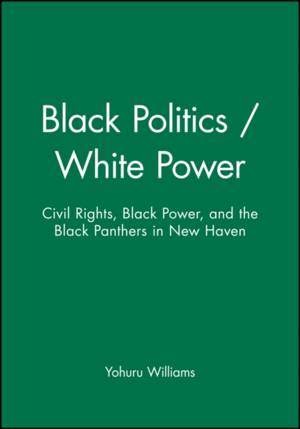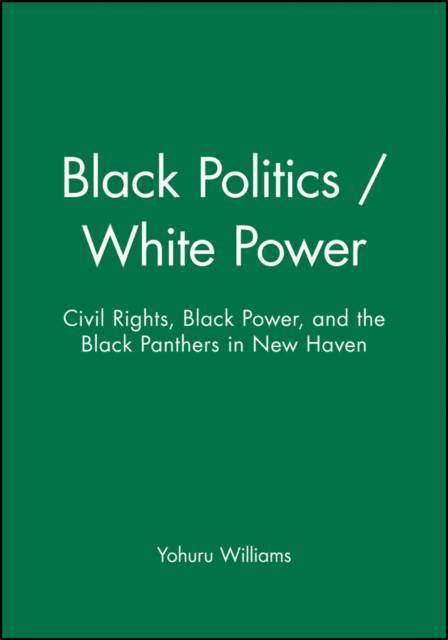
Bedankt voor het vertrouwen het afgelopen jaar! Om jou te bedanken bieden we GRATIS verzending (in België) aan op alles gedurende de hele maand januari.
- Afhalen na 1 uur in een winkel met voorraad
- In januari gratis thuislevering in België
- Ruim aanbod met 7 miljoen producten
Bedankt voor het vertrouwen het afgelopen jaar! Om jou te bedanken bieden we GRATIS verzending (in België) aan op alles gedurende de hele maand januari.
- Afhalen na 1 uur in een winkel met voorraad
- In januari gratis thuislevering in België
- Ruim aanbod met 7 miljoen producten
Zoeken
Black Politics / White Power
Civil Rights, Black Power, and the Black Panthers in New Haven
Yohuru Williams
Paperback | Engels
€ 55,95
+ 111 punten
Omschrijving
The popular media have portrayed the Black Panthers mainly for the rhetoric of violence some members employed and for the associations between the Panthers and a black militancy drawing on racial hostility to whites in general. Overlooked have been the efforts that branches of the organization undertook for practical economic and social progress within African-American neighborhoods, frequently in alliance with whites. Yohuru Williams' study of black politics in New Haven culminating in the arrival of the Panthers argues that the increasing militancy in the black community there was motivated not by abstractions of black cultural integrity but by the continuing frustrations the leadership suffered in its dealings with the city's white liberal establishment. Black Politics/White Power is an important contribution to a discovery of the complexities of racial politics during the angry late sixties and early seventies.
Specificaties
Betrokkenen
- Auteur(s):
- Uitgeverij:
Inhoud
- Aantal bladzijden:
- 208
- Taal:
- Engels
Eigenschappen
- Productcode (EAN):
- 9781881089605
- Verschijningsdatum:
- 26/07/2000
- Uitvoering:
- Paperback
- Formaat:
- Trade paperback (VS)
- Afmetingen:
- 150 mm x 224 mm
- Gewicht:
- 294 g

Alleen bij Standaard Boekhandel
+ 111 punten op je klantenkaart van Standaard Boekhandel
Beoordelingen
We publiceren alleen reviews die voldoen aan de voorwaarden voor reviews. Bekijk onze voorwaarden voor reviews.









